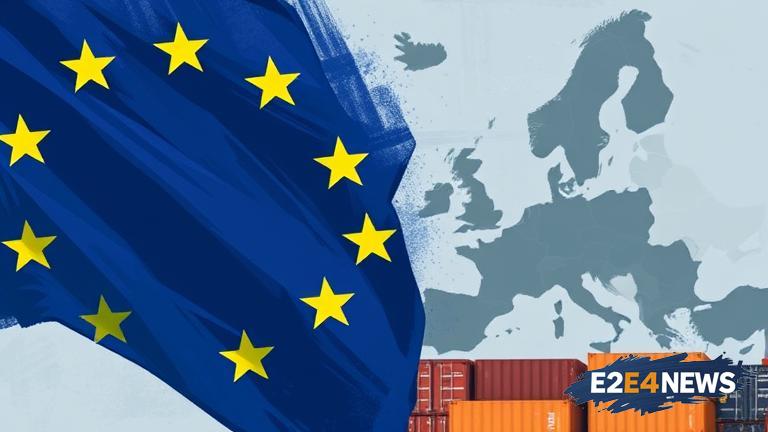The European Union has announced the suspension of retaliatory tariffs on US goods, a move aimed at de-escalating trade tensions between the two economic powerhouses. This decision comes as former US President Donald Trump once again raises the specter of imposing higher tariffs on pharmaceutical products. The EU’s decision to halt the retaliatory tariffs is seen as a strategic move to ease tensions and potentially pave the way for more constructive trade negotiations. The tariffs, which were initially imposed in response to US tariffs on steel and aluminum, have been a major point of contention between the EU and the US. The EU’s suspension of these tariffs is expected to have a positive impact on trade relations, at least in the short term. However, the threat of higher tariffs on pharmaceuticals, as reiterated by Trump, could potentially derail these efforts. The pharmaceutical industry is a significant sector in both the EU and the US, and any tariffs imposed on these products could have far-reaching consequences. The EU has been vocal about its opposition to such tariffs, citing concerns about the impact on public health and the economy. Despite these challenges, the EU remains committed to finding a resolution to the trade tensions through diplomatic means. The suspension of retaliatory tariffs is a clear indication of this commitment. The move is also seen as a gesture of goodwill, aimed at encouraging the US to engage in more constructive trade talks. The EU and the US have a long history of trade cooperation, and both sides recognize the importance of maintaining a strong and stable trade relationship. However, the ongoing trade tensions have created uncertainty and instability, affecting businesses and consumers on both sides of the Atlantic. The EU’s decision to suspend retaliatory tariffs is a step in the right direction, but it remains to be seen how the US will respond. Trump’s threats of higher tariffs on pharmaceuticals have added a new layer of complexity to the trade negotiations. The pharmaceutical industry is a critical sector, and any tariffs imposed on these products could have significant consequences for public health and the economy. The EU has reiterated its commitment to defending its interests and ensuring that any trade agreement is fair and balanced. The suspension of retaliatory tariffs is a positive development, but it is only the first step in a long and complex process. The EU and the US must continue to work together to find a resolution to the trade tensions and ensure that their trade relationship remains strong and stable. The ongoing trade tensions have highlighted the need for a more coordinated and cooperative approach to trade policy. The EU and the US must prioritize dialogue and diplomacy in their trade negotiations, rather than relying on tariffs and other protectionist measures. By working together, the EU and the US can find a resolution to the trade tensions and ensure that their trade relationship remains a positive force for economic growth and development. The suspension of retaliatory tariffs is a welcome development, and it is hoped that this will mark the beginning of a more constructive and cooperative phase in EU-US trade relations.
